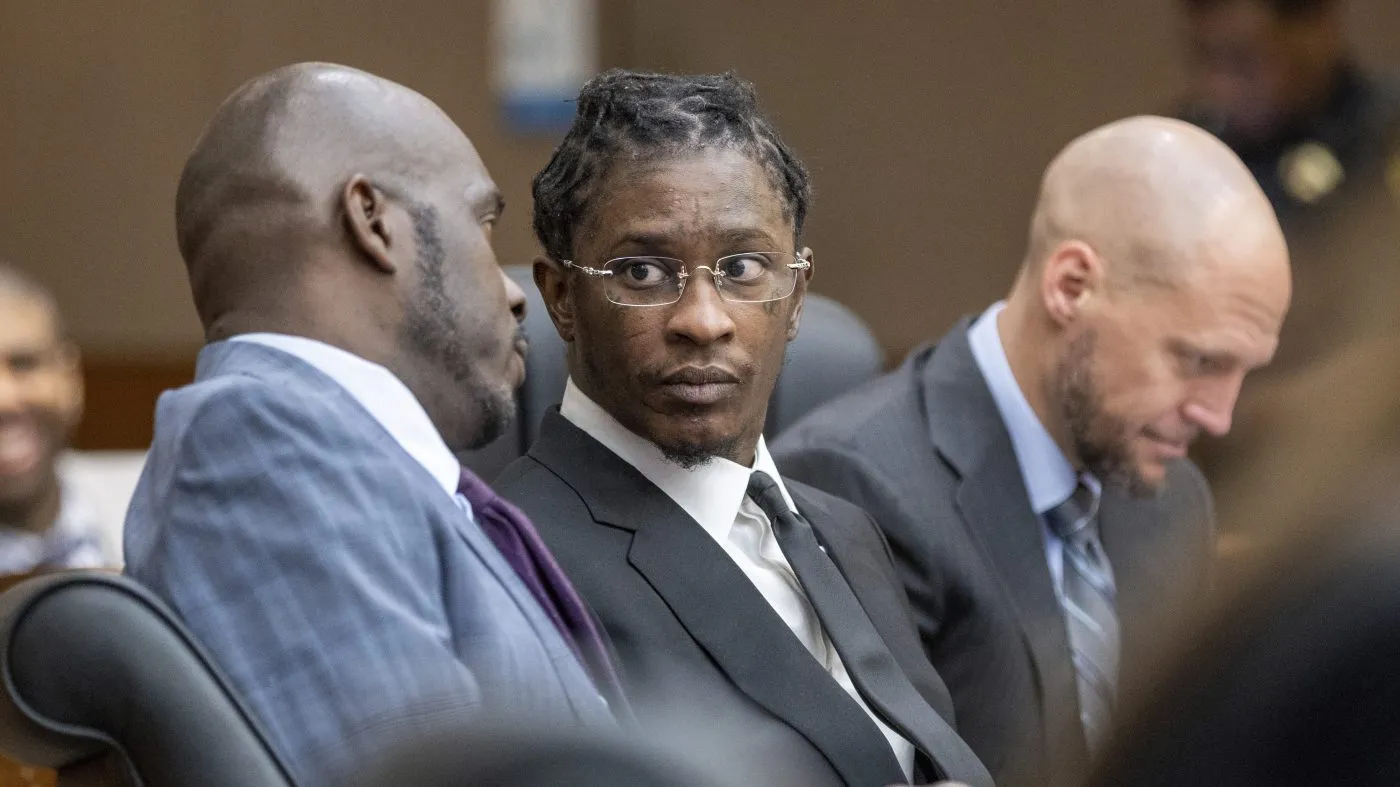Ezrah Kashumbusha.
GEORGIA, December, 2023 | In a surprising twist to the legal saga surrounding acclaimed rapper Jeffery Williams, popularly known as Young Thug, the courtroom drama has taken an unexpected turn as prosecutors cite the artist’s own lyrics as evidence in a case involving alleged fraudulent activities and the founding of a street gang named YSL (Young Slime Life).
The accusations, led by Deputy District Attorney Fani Wills of Fulton County, center around Young Thug’s purported involvement in founding the YSL gang, which has been linked to criminal activities such as carjacking and robbery. The artist, who has been in jail since May 2022, faces charges alongside 27 other members of the YSL gang.
During opening remarks this week, Deputy District Attorney Wills argued that Young Thug’s lyrics hold relevance to the alleged crimes and possess an uncanny resemblance to real-life incidents. In a carefully crafted statement, Wills highlighted the eerie significance of including part of the rapper’s lyrics, claiming a potential association with murder.
Among the lyrics brought into play during the trial is a verse from Young Thug’s song “Anybody,” where he raps, “I never killed anybody but I got them to shoot a hundred rounds, Ready for war like I’m Russia, I get all types of cash / I’m a general.” Prosecutors argue that these lines contribute to the narrative of the YSL gang engaging in violent activities, presenting a compelling case against the rapper.
The legal proceedings are seen as key to unraveling the crimnalities around Young Thugs’s life. They target not just Young Thug but 28 individuals associated with the alleged criminal street gang. The accusations, initially addressed by District Attorney Fani Wills in a 2022 press conference, highlight the broader impact of the case on the community, emphasizing the prosecution’s commitment to curbing chaos and criminal activities.
As Young Thug’s trial unfolds, the intersection of artistic expression and legal consequences takes center stage, prompting discussions about the potential influence and interpretation of lyrics in the context of criminal investigations. The case highlights that even in the realm of creativity, the lines between art and reality can blur, leading to unforeseen legal ramifications. The outcome of this trial will undoubtedly have implications not only for Young Thug but for the broader conversation about the responsibilities and consequences associated with the words and narratives presented in the realm of music and entertainment.
















